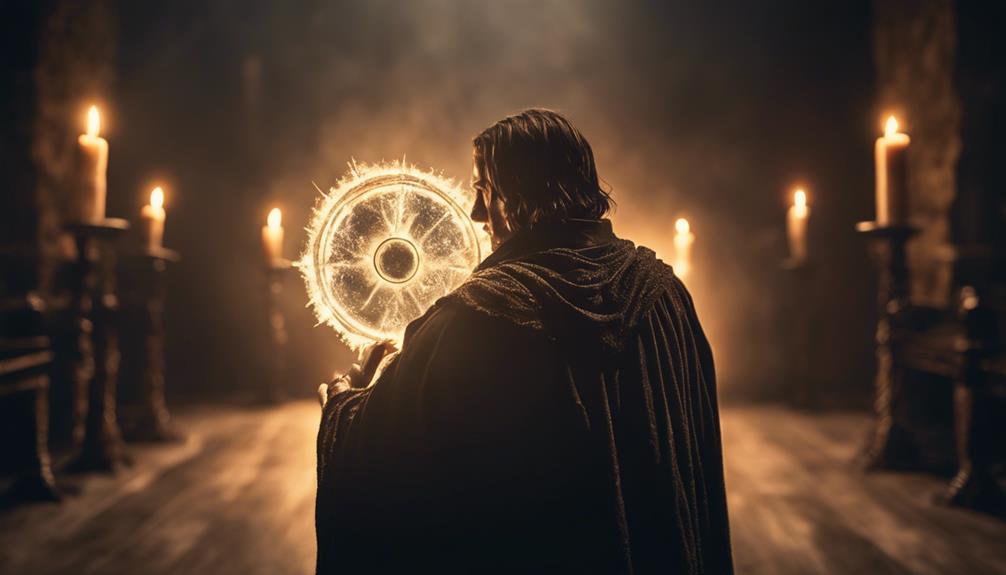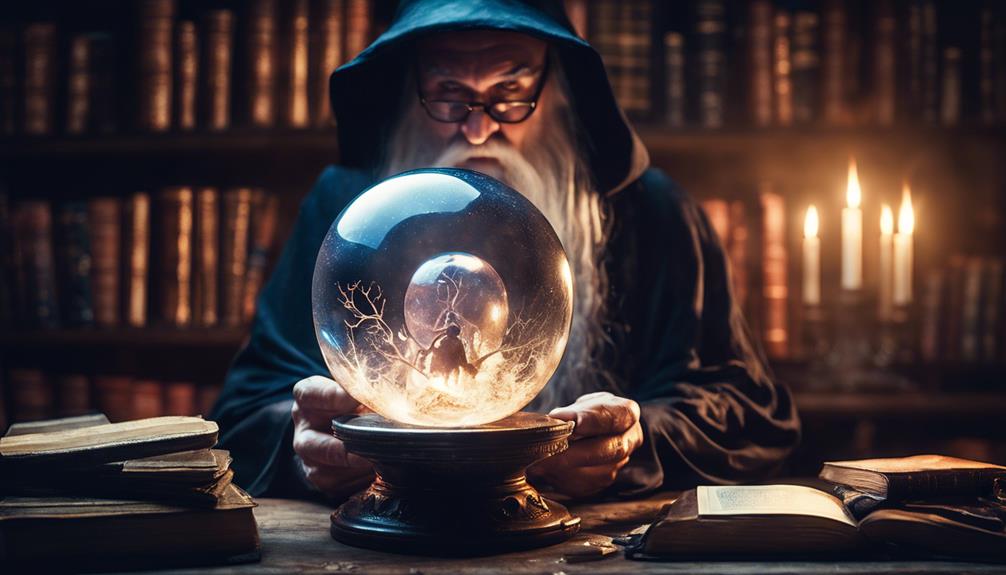The practice of astrology, particularly predictive horoscopes, has long been a subject of fascination and skepticism. While many individuals find value and insight in the predictions cast by astrologers, there is an ongoing debate about the empirical testing of these forecasts.
Scientific inquiries have sought to assess the validity of astrological predictions through various methods, but the complexities and nuances of astrology have made this a contentious and multifaceted endeavor.
As we delve into the methods and arguments surrounding the testing of astrology practiced by those who cast predictive horoscopes, it becomes evident that this topic encompasses a diverse range of perspectives and challenges that warrant exploration.
Key Takeaways
- Astrology lacks empirical evidence and does not meet the criteria of the scientific method.
- Controlled experiments and statistical analysis can be used to assess the accuracy of predictive horoscopes.
- Generalized predictions and confirmation bias are limitations of testing astrology.
- Case studies can provide insights into the accuracy of astrological predictions and highlight its strengths and weaknesses as a predictive tool.
Testing the Accuracy of Predictive Horoscopes

Testing the accuracy of predictive horoscopes requires a systematic analysis of astrological predictions and their alignment with actual outcomes. Astrologers' perspectives on testing astrology often emphasize the complexities involved, highlighting the unpredictability of celestial events' effects on human actions.
Historical research on astrology has yielded conflicting results, adding to the challenge of testing its accuracy. In contrast, astronomers and scientists typically dismiss astrology as subjective interpretations, exploring it from sociological or psychological viewpoints rather than validating its predictive capabilities.
They often regard astrology as a historical phenomenon that influenced past civilizations' decisions and actions. Therefore, testing the accuracy of predictive horoscopes involves reconciling these contrasting perspectives and considering cultural variations and individual interpretations to comprehensively evaluate its validity.
Scientific Method and Astrology
The contrasting perspectives on astrology's validity, as discussed in the previous subtopic, prompt an examination of the relationship between the scientific method and astrology.
Astronomers and scientists often disregard astrology as subjective interpretations, with some exploring it from a sociological or psychological viewpoint.
However, astrologers find testing astrology challenging due to its complex elements and believe that scientific tests ignore individual experiences and feelings. They emphasize the unpredictability of celestial events and the importance of understanding astrology's complexities.
This highlights the fundamental challenge in applying the scientific method to astrology, as it needs to account for the intricacies and individualized nature of astrological interpretations.
The differing perspectives of astronomers, scientists, and astrologers pose a significant obstacle in objectively testing astrology using traditional scientific methods.
Controlled Experiments and Statistical Analysis

When evaluating the accuracy of predictive horoscopes, employing controlled experiments and statistical analysis becomes essential in objectively assessing astrological predictions.
Ethical considerations play a crucial role in conducting controlled experiments, ensuring that participants' rights and well-being are safeguarded. Additionally, the sample size used in these experiments needs to be diverse and representative of the population under study.
Statistical measures such as chi-squared tests, t-tests, and regression analysis are utilized to analyze the data collected from these experiments. Moreover, it is imperative to consider experimental conditions and control for variables like age, gender, and beliefs to ensure the reliability and validity of the results.
Through rigorous adherence to ethical guidelines and meticulous attention to sample size and statistical analysis, the accuracy of predictive horoscopes can be objectively evaluated.
Criticisms and Limitations of Testing Astrology
Employing controlled experiments and statistical analysis are essential when evaluating the accuracy of predictive horoscopes. It is important to acknowledge the criticisms and limitations of testing astrology in order to provide a comprehensive understanding of its validity.
Ethical challenges arise when conducting controlled experiments on individuals for astrological testing. Furthermore, astrology's generalized predictions make it unreliable for specific outcomes, leading to skepticism regarding its accuracy. Additionally, confirmation bias can mislead both astrologers and seekers of horoscope readings.
In contrast, astrology can be viewed as a tool for self-reflection and personal growth, encouraging individuals to consider their actions and decisions. While astrology may not provide precise predictions, it can still offer value in fostering self-reflection and personal development.
Thus, a balanced consideration of its limitations and potential benefits is warranted.
Case Studies of Astrology Predictions

Case studies provide valuable insights into the accuracy of astrological predictions, offering a nuanced understanding of the strengths and weaknesses of astrology as a predictive tool.
Comparing astrological predictions against actual outcomes enables the evaluation of astrologers' accuracy in forecasting events. By systematically analyzing past predictions and comparing them with real-world results, researchers can assess the consistency and reliability of astrological forecasts.
These case studies highlight the practical application of astrology and its potential impact on decision-making processes. Through the examination of specific predictions and their alignment with observed events, the effectiveness of astrological practices can be critically evaluated.
Furthermore, case studies contribute to a more comprehensive understanding of the complexities and limitations of astrology as a predictive tool, providing valuable insights for further research and analysis.
Expert Opinions on the Validity of Predictive Horoscopes
Expert opinions on the validity of predictive horoscopes vary widely within the academic and astrological communities. When assessing astrological factors and specific predictions, experts consider the following:
- Renowned astrologers' predictions
- Evaluation of successful predictions made by widely recognized astrologers.
- Analysis of the consistency and accuracy of their forecasts over time.
These evaluations play a crucial role in determining the credibility and validity of predictive horoscopes within the astrological and academic spheres.
Assessing astrological factors
- Examination of celestial placements, planetary movements, and other astrological indicators.
- Consideration of the impact of these factors on the events and experiences being predicted.
These evaluations also contribute to the overall assessment of predictive horoscopes.
Frequently Asked Questions
What Ethical Considerations Are Involved in Conducting Controlled Experiments on Astrology Predictions?
Ethical considerations in controlled experiments on astrology predictions include respecting participants' beliefs and privacy. Impact of culture must be considered, as interpretations vary. Testing accuracy involves ensuring fair treatment and transparency in data collection and analysis.
How Do Cultural Variations Impact the Testing of Astrological Predictions?
Cultural variations significantly influence astrological prediction testing, impacting research methods and globalization. Research challenges arise due to diverse belief systems. Understanding these influences is crucial for comprehensive astrological testing in a globalized world.
Can Astrology Be Used as a Tool for Personal Growth and Self-Reflection, Even if Its Accuracy Is Not Scientifically Proven?
Astrology can serve as a tool for personal growth, self-reflection, and psychological insight, irrespective of scientific validation. It offers a framework for spiritual development and can facilitate self-discovery, fostering deeper understanding and introspection.
What Are the Potential Implications of Disregarding Astrology as Subjective Interpretations by Astronomers and Scientists?
Disregarding astrology as subjective interpretations by astronomers and scientists may have ethical implications in dismissing cultural beliefs. The cultural impact of disregarding astrology could lead to alienation and devaluation of significant cultural practices.
How Do Astrologers Account for the Unpredictability of Celestial Events When Creating Horoscopes?
The impact of celestial unpredictability prompts astrologers to make astrological adjustments, recognizing the dynamic nature of cosmic events. They incorporate flexibility and intuition, acknowledging that celestial forces may manifest unexpectedly in individual horoscopes.
Conclusion
In the intricate web of stars and planets, the accuracy of predictive horoscopes remains a topic of debate, with astrologers and scientists offering contrasting perspectives. Through controlled experiments, statistical analysis, and case studies, the validity of astrology is continually tested.
However, the complexities and limitations inherent in predicting human experiences through celestial movements underscore the challenges of assessing its accuracy. The ongoing dialogue between skeptics and believers highlights the need for a nuanced understanding of astrology's cultural and historical context.



